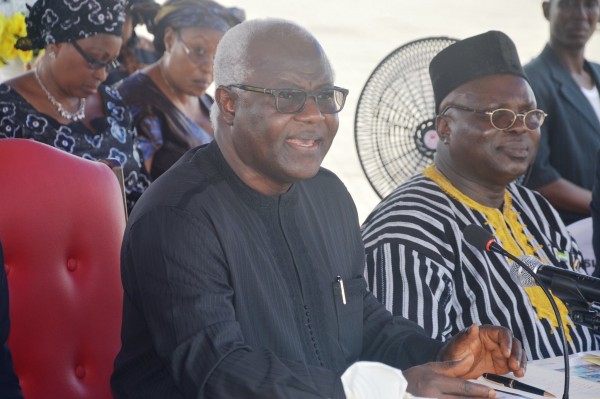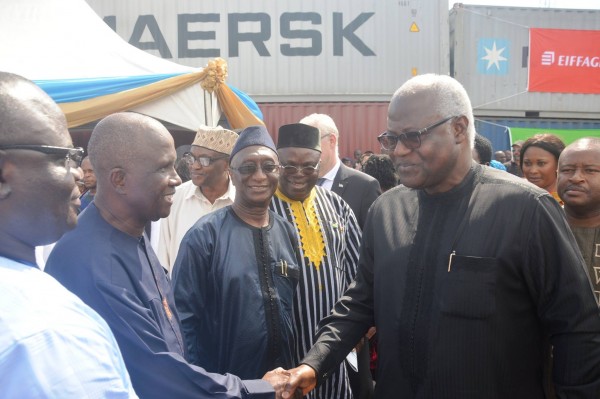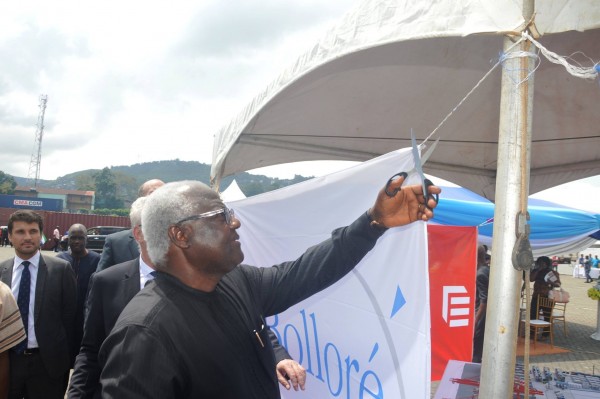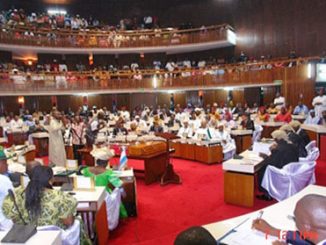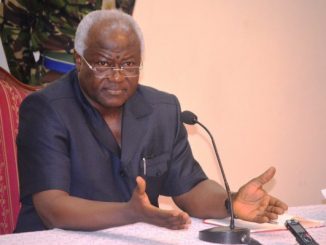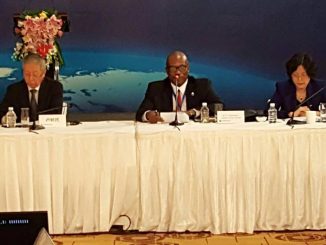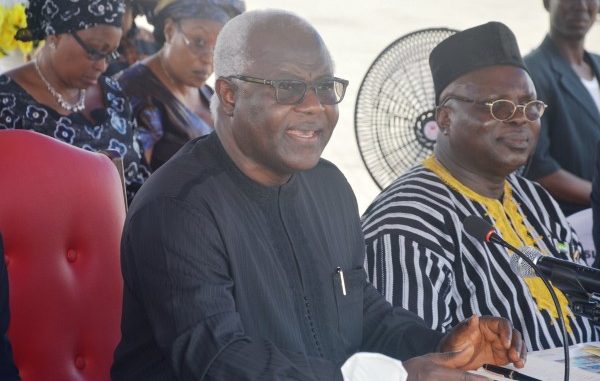
By State House Communication Unit
President Ernest Bai Koroma broke his silence this morning (October 14, 2016) on the ongoing attacks against his government in the wake of the country’s current economic challenges.
The commander-in-chief did not mince words, calling attacks against his government “incoherent newspaper articles and radio talkshops.” He said unequivocally that “development is a tough process and prosperity does not come on a silver platter.” These two things, he pointed out require effective collaboration and perseverance, not “layback theoretical prescriptions” and “half-hearted political grandstanding”.
President Koroma spoke at the official launching of the Freetown Containers Terminal Extension Project at the Queen Elizabeth II Quay, Cline Town in Freetown. He also stated that, “some of our detractors might want to say my Government is too ambitious in some of our projects. We have to be; because we have always believed in actions than intentions. Dubai started as a Port; today they are a leading global commercial hub. We have the potential to become a transshipment hub and the Freetown Containers Terminal Extension Project is an indication that Sierra Leone is ready for business.”
The president reiterated his commitment to remain focused in transforming the country. The modernization and expansion of the Port, which is Sierra Leone’s main trading gateway, he said, “is part of my ongoing transformation projects and we will carry on with this agenda unabated,” adding that it reflects his government’s emphasis on own revenue generation that would improve on especially the container terminal and to better tap on the potential in terms of its contribution to the country’s economic growth.
Despite the economic challenges, President Koroma defended his government’s approach to addressing the economy, and maintained that efforts to modernize the Port are paying off and have gained recognition in the sub-region. “Our Port has been ranked among the top two in West Africa since 2014, and has also recently being ranked first in the first quarter of 2016.”
According to the president, the extension will have a new berth of up to 270 meters; “two new ship terminal shore cranes will be installed and the Port capacity will be increased by nearly three times to accommodate ships with up to 6000 containers as against the current 2000 to 2500; and we will be able to move between 40 to 45 containers per hour from the current 20 to 25. The expansion will also reclaim up to 237 hectres of land which will become part of a state-of-the-art harbor that will accommodate deep sea vessels and increase the performance of our Port.”
He however noted that the project is just part of the process of developing the Port to a hub not just for landlocked countries but also for the entire African continent. “With today’s event, we are setting off towards this aspiration,” he emphasized.
President Koroma further reminded the gathering that before the partnership with Bollore, the Port had no crane and was only able to move eight containers per hour; “now there are three cranes and container movement has increased to between 25 to 30.” He also highlighted developments that had taken place prior to the partnership with Bollore, saying that the general yard was dilapidated and unattractive in contrast to the new pavement, expansion has also made room for up to 250,000 containers with a fully operational tracking system.
Dr Ernest Bai Koroma launched the expansion of a 270 meter berth of the Freetown Terminal at the Quay Elizabeth II Quay in Cline Town, Freetown. The goal of the expansion is to transform the port into a modern and highly efficient port platform to match the country’s economic ambition. Through this Public Private Partnership (PPP), Bollore Transport and Logistics plans to double the volumes handled over the next five years, while optimizing the terminal productivity.
According to the General Manager of the Sierra Leone Ports Authority, Abu Bangura, the move to expand the port is aimed at transforming it into a transhipment hub in the region.

